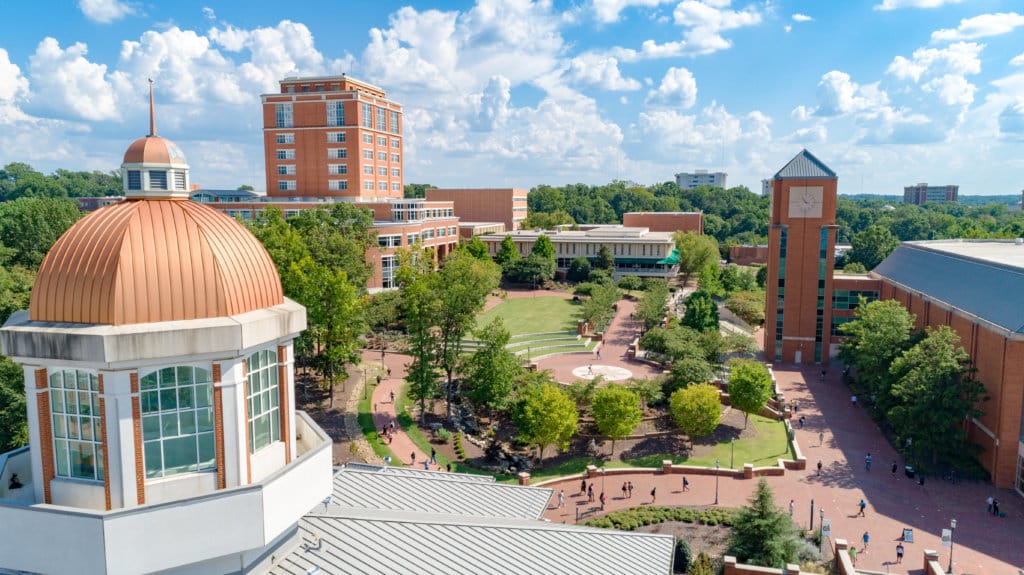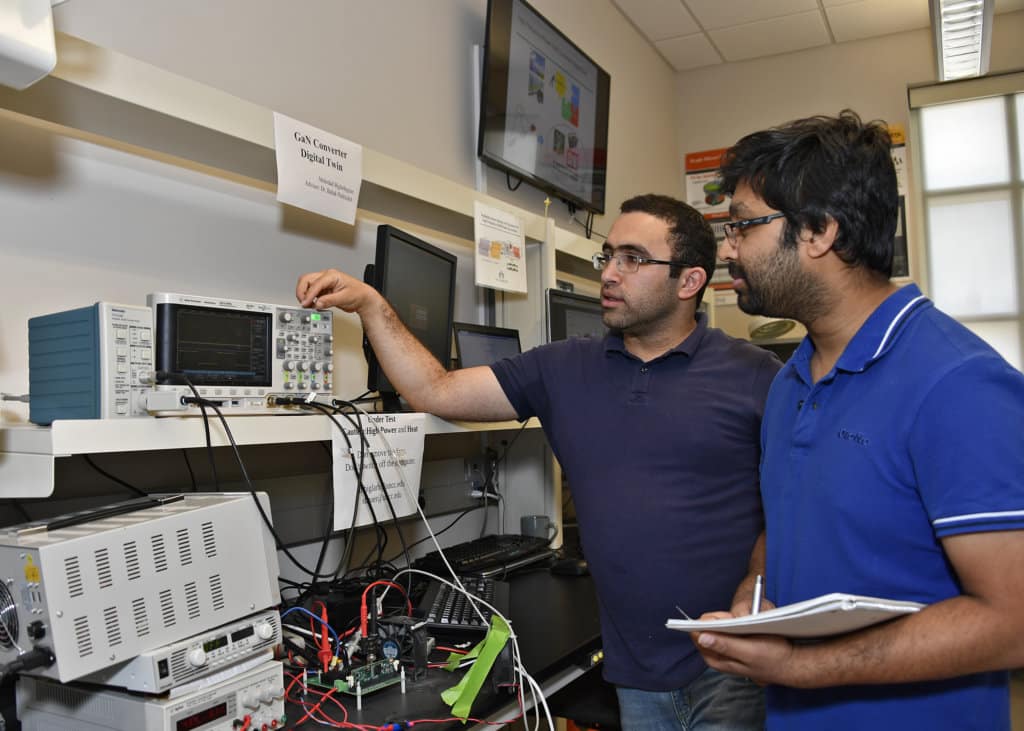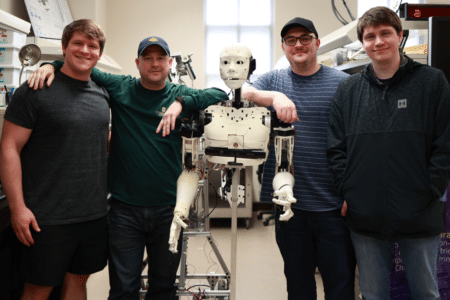In the bustling heart of North Carolina, the William States Lee College of Engineering at UNC Charlotte stands as a beacon of innovation and excellence. With a reputation for being one of the finest engineering colleges in the Southeast for more than 60 years, the college has been educating and leading in numerous disciplines, including civil and environmental engineering, electrical and computer engineering, industrial and systems engineering, mechanical engineering and engineering science, and engineering technology and construction management.
UNC Charlotte’s prime location has benefits; for instance, Forbes ranked it fifth nationally in the list of best big cities for jobs in part because Charlotte has more Fortune 500 company headquarters than any other city in the Carolinas.
With a population of 2.2 million, the Charlotte metropolitan area is very well connected. It is centrally located in the eastern US with an international airport and within three driving hours of the Blue Ridge Mountains and Atlantic Coast beaches. Students benefit from the accessibility of UNC Charlotte, which has a light rail terminal on campus and allows students to travel easily through the city.

Students at W.S. Lee College of Engineering have access to the best facilities no matter their specialisation. Source: UNC Charlotte
Facilities on campus are just as impressive. From maker spaces to cutting-edge laboratories, they offer students some of the finest engineering facilities in the country. The precision metrology facility is one of them, ranked first in the US and in the top three globally. Another stand-out facility on campus is the Energy Production and Infrastructure Centre (EPIC), which was formed through private and public funding to meet the rising demand for talent in the energy industry. EPIC also partners with industry to research new alternative energy solutions. Students can enjoy a virtual tour of the facility here. In addition, the W.S. Lee College of Engineering just recently opened its newest state-of-the-art research centre called BATT CAVE (BATTery Complexity, Autonomous Vehicle and Electrification). It is the first and only university-led centre in North Carolina focused on advancing the field of battery technology.
Students have access to state-of-the-art research facilities no matter their area of expertise. This includes advanced/additive manufacturing, airport development and design, artificial intelligence, autonomous vehicles, battery safety, clean energy, concrete and construction, cybersecurity, digital twinning, energy smart-grids, next-generation battery manufacturing, optics, photonic devices, power electronics, smart and sustainable cities, transportation, vehicle and rail electrification, and wireless power transfer. As about 70% of the faculty have industry experience, students get behind-the-scenes insights that can lead to the discovery of new concepts, devices, methodologies, and processes, as well as ways to test solutions to problems that plague society.
Graduates from this school enter the working world with real experience because of research projects that are done in collaboration with the university’s industry partners that include over 200 organisations (from government organisations and national labs to regional and global corporations). Working with these industry giants — in a research project, internships, seminar presentations or course instructions — can lead to full-time employment opportunities for many students.
Committed to applied, interdisciplinary research, several W.S. Lee College of Engineering graduate engineering degree programmes are ranked in the top 100 by U.S. News and World Report. The school has 11 bachelor’s, eight master’s and four PhD degree programmes to choose from. The MS and PhD in Electrical Engineering prepare students for a career in wireless communication and networking, traffic modelling, pattern recognition, computer vision, multivariable and optimal controls, hardware security, cyber-physical systems, embedded mobile computing, fibre optic sensors, optical and optoelectronic networks, photovoltaics, quantum devices, power electronics and power systems, microgrids, smart grids, energy systems or renewable energy. While the MS and PhD in Mechanical Engineering allow you to explore the worlds of precision metrology, advanced manufacturing, battery safety, new battery materials, autonomous vehicles, Bio-Micro-Electro-Mechanical Systems (BioMEMS), and neuronal regeneration, in addition to energy systems, renewable energy, optical systems.
An MS or PhD in Civil Engineering gives students the opportunity to conduct research in renowned facilities such as the US Department of Transportation-funded Centre for Advanced Multimodal Mobility Solutions and Education; the cutting-edge High Bay laboratory; the NSF-funded Sustainability Integrated Building Sites; the Infrastructure, Design, Environment and Sustainability Centre; and Centre for Transportation Policy Studies.

There are many degree programmes to choose from at the W.S. Lee College of Engineering. Source: UNC Charlotte
For specially curated training in cybersecurity, cyber-physical systems, computer vision, edge computing, embedded systems, IoT, robotics, smart grids and the like, check out the MS in Computer Engineering. You will get to work with nationally-recognised experts in both hardware and software technologies, and participate in hands-on projects or internships.
The MS in Applied Energy and Electromechanical Engineering is a flexible programme that gives you the opportunity to tailor the degree to your interests, whether you prefer a broad study of the intersection between the energy sector and electromechanical domain or getting more discipline-specific or multidisciplinary. This is the ideal choice if you are looking to take on advanced coursework and research that will enhance professional development, improve technical competency, and initiate a lifelong learning experience.
For a professional career in constructing, operating, and/or maintaining the built environment and infrastructure, there is the MS in Construction and Facilities Engineering (CAFE). You can shape your plan of study on pre-construction, project delivery or managing the built environment and, because of the school’s partner collaborations, you will take part in experiential projects and internships to prepare you for your career.
Begin your engineering journey at William States Lee College of Engineering at UNC Charlotte, click here to apply now.
Follow William States Lee College of Engineering on Facebook, Twitter, LinkedIn, Instagram and YouTube













